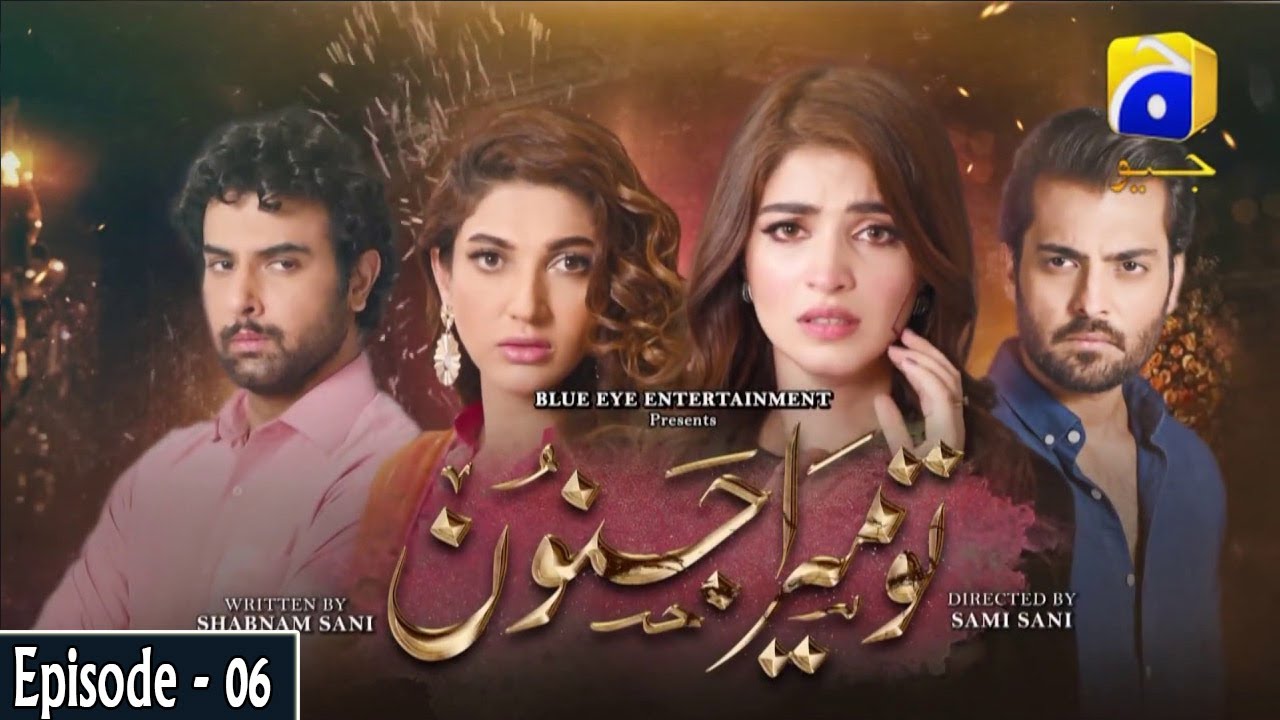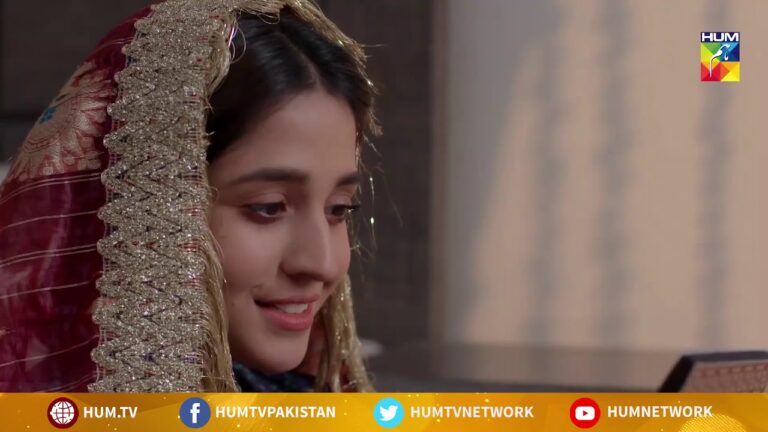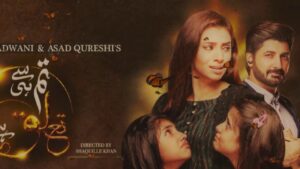Tu Mera Junoon Drama Review: “Tu Mera Junoon” (2019) is a Pakistani drama that blends elements of romance, revenge, and social commentary. The narrative follows Hayat (Sana Fakhar), a strong-willed MBA student, and her journey through heartbreak, forgiveness, and the pursuit of her dreams.
A Brutal Betrayal and an Unyielding Spirit: Plot and Characters
Hayat is in love with her classmate Salar (Asad Siddiqui) and plans to marry him. However, on their wedding night, her cousin Taimoor (Noor Hassan Rizvi), who has been obsessed with Hayat for years, brutally attacks her, leaving her permanently scarred.
The attack shatters Hayat’s world and throws her future into uncertainty. Salar, initially supportive, struggles to accept Hayat’s disfigurement, leading to their separation. Devastated but determined, Hayat refuses to be defined by her trauma. She seeks justice, confronts her inner demons, and pursues her dream career as a businesswoman.
Through her journey, Hayat encounters other characters who shape her story. A supportive family and a loyal friend offer her strength and encouragement. A mysterious stranger, Rumi (Uzair Jaswal), becomes a source of inspiration and helps Hayat rediscover her passion for music.
Beyond Scars: Themes and Symbolism
“Tu Mera Junoon” tackles the sensitive theme of disfigurement and societal perceptions of beauty. Hayat’s struggle to find acceptance after the attack resonates with viewers who have faced similar challenges. The series promotes a message of self-acceptance and inner strength.
Forgiveness emerges as another central theme. Hayat’s journey to forgive Taimoor, the source of her pain, is a complex and gradual process. The narrative explores the importance of forgiveness for healing and moving forward in life.
Music serves as a powerful symbol throughout the series. Hayat’s passion for music becomes a source of solace and a means of expressing her emotions. Rumi, a talented musician, encourages her to use music as a tool for healing and empowerment.
A Blend of Social Commentary and Emotional Journey: Style and Techniques
“Tu Mera Junoon” utilizes a melodramatic style, common in many Pakistani dramas. The emotional conflicts between characters are heightened, particularly during scenes depicting Hayat’s struggles and Taimoor’s remorse. This style effectively conveys the intensity of the characters’ emotions but might not appeal to all viewers.
Flashbacks are employed to showcase Hayat’s happy life before the attack and the blossoming romance with Salar. These flashbacks create a stark contrast with her present reality, adding depth to her emotional journey.
The soundtrack features a blend of soulful melodies and contemporary Pakistani music. Uplifting music underscores moments of hope and resilience, while melancholic tunes enhance scenes of heartbreak and despair. Hayat’s own musical performances weave seamlessly into the narrative, adding an emotional layer to her story.
Critical Reception and Lasting Impact
“Tu Mera Junoon” received generally positive reviews. Praised for its strong female lead, its exploration of social issues, and its integration of music, the series resonated with viewers. Some viewers felt the romance aspect could have been developed further, and the ending might be considered open-ended.
Despite its limitations, “Tu Mera Junoon” tackles important themes in a compelling way. The series serves as a reminder of the human spirit’s resilience, the power of forgiveness, and the importance of pursuing one’s dreams despite facing adversity.
Social Commentary and Gender Stereotypes:
- Beauty Standards: The drama tackles the societal obsession with physical beauty and the marginalization of those who don’t conform to conventional standards. Hayat’s struggle highlights the need to challenge unrealistic beauty expectations and promote self-acceptance.
- Victim Blaming: While the series condemns violence against women, there might be a subtle element of victim blaming when some characters question Hayat’s choices or behavior after the attack. A modern adaptation could address this more directly.
- Women’s Empowerment: Hayat’s pursuit of an education and a career portrays women’s agency and their right to define their own success. However, some viewers might find the reliance on a male character (Rumi) for her initial support slightly limiting.
Character Motivations and Development:
- Salar’s Transformation: Salar’s initial struggle to accept Hayat’s scars could be perceived as shallowness. The series could delve deeper into his emotional journey, exploring his fear of societal judgment and his eventual growth towards acceptance.
- Taimoor’s Redemption: Taimoor’s remorse and attempts to seek forgiveness from Hayat are a complex element. A modern adaptation could explore the root causes of his obsession and the possibility of genuine rehabilitation.
- Rumi’s Role: Rumi serves as a catalyst for Hayat’s healing and growth. However, his character’s motivations and backstory remain somewhat ambiguous. Further fleshing out his role could add depth to the narrative.
A Story for a Modern Audience:
“Tu Mera Junoon” offers a relevant message about resilience and self-acceptance in the face of adversity. To resonate with a modern audience, some aspects could be reframed:
- Stronger Support System: Highlighting the role of female friendships and a supportive network of women could empower female viewers further.
- Mental Health Awareness: The series could explore the psychological impact of trauma on Hayat and the importance of seeking professional help.
- Open Discussion on Violence: A more open discussion about violence against women and the legal repercussions for perpetrators could add a layer of social commentary.
A Song of Triumph Over Trauma:
“Tu Mera Junoon” is a captivating drama that offers a powerful message of hope and self-belief. With its complex characters, its exploration of social issues, and its beautiful integration of music, the series provides a thought-provoking viewing experience. While the melodrama might not resonate with all viewers, Hayat’s journey of resilience and self-discovery leaves a lasting impression.










+ There are no comments
Add yours